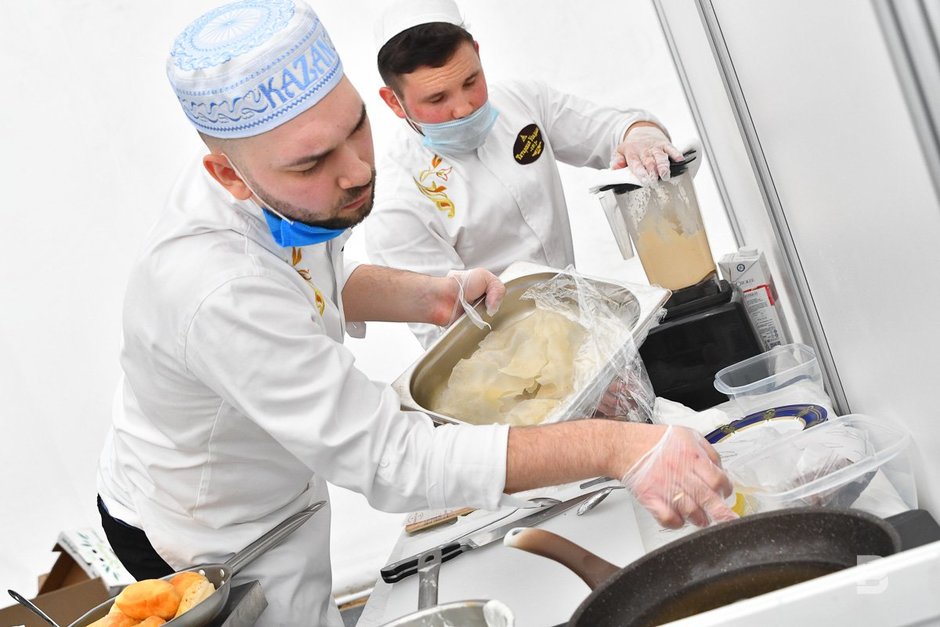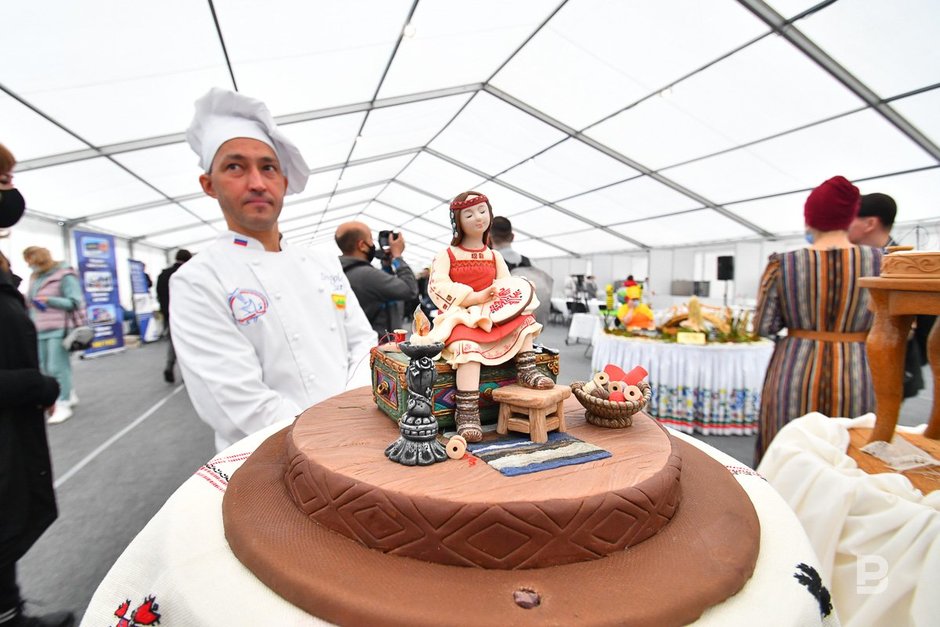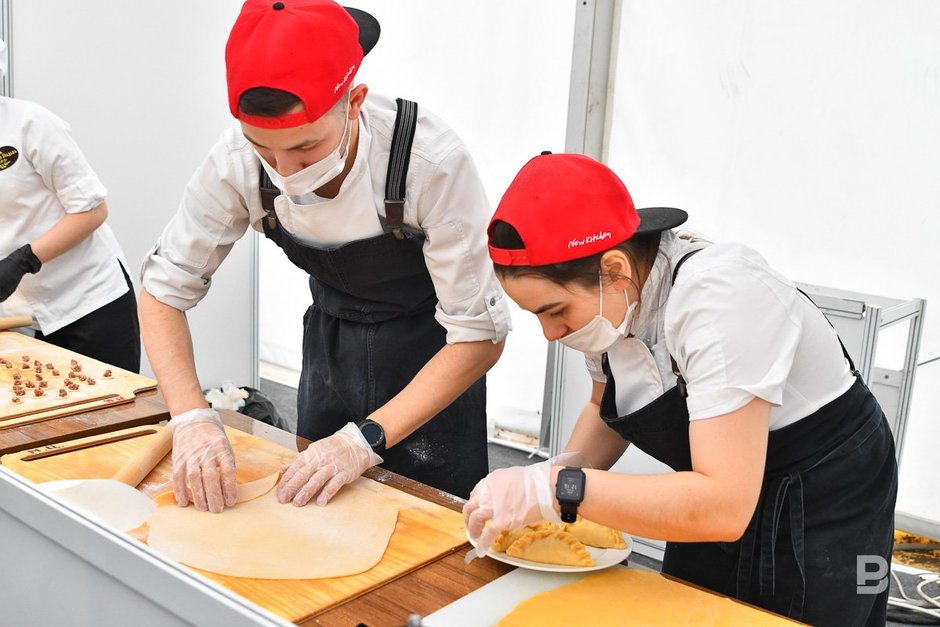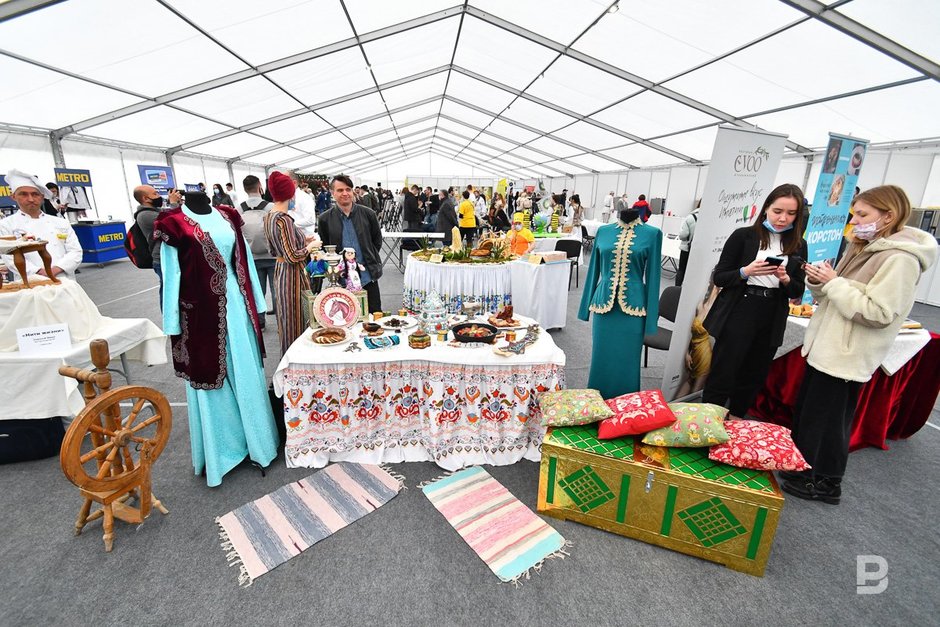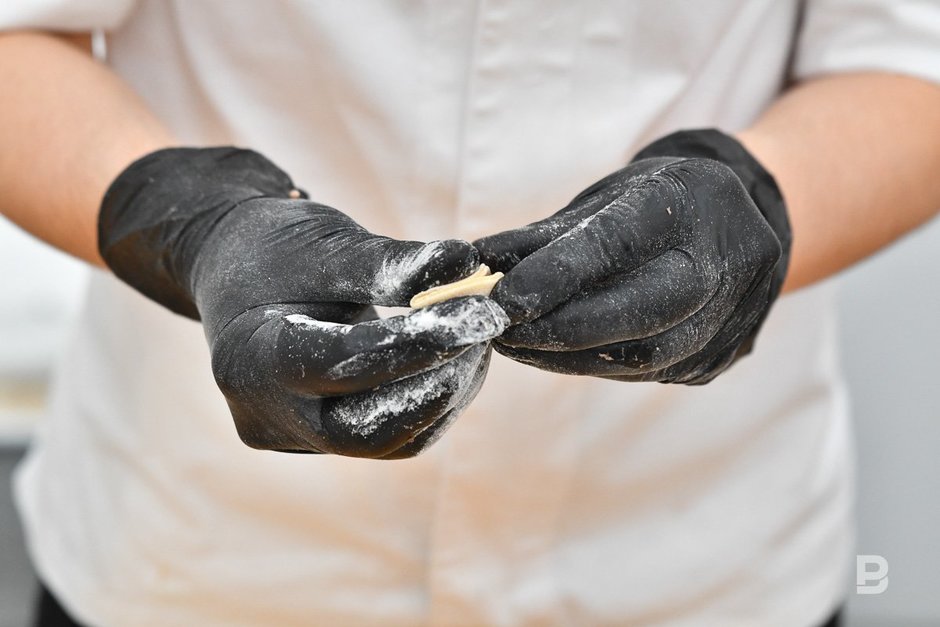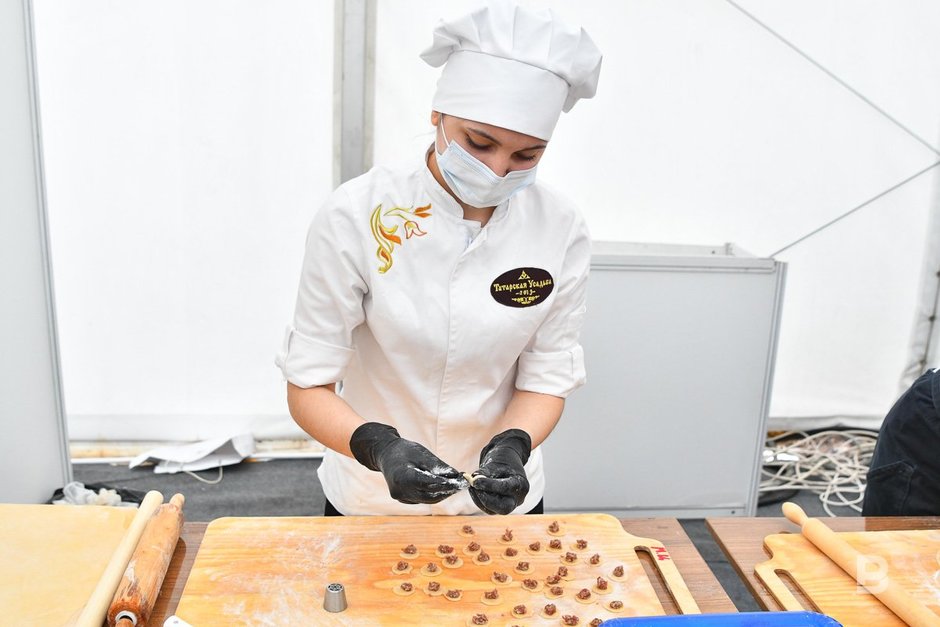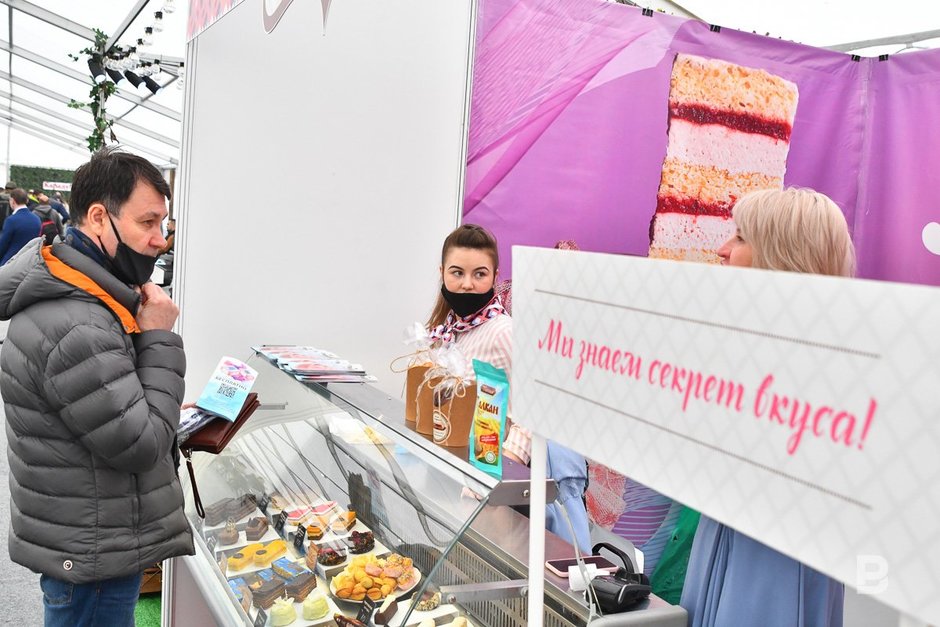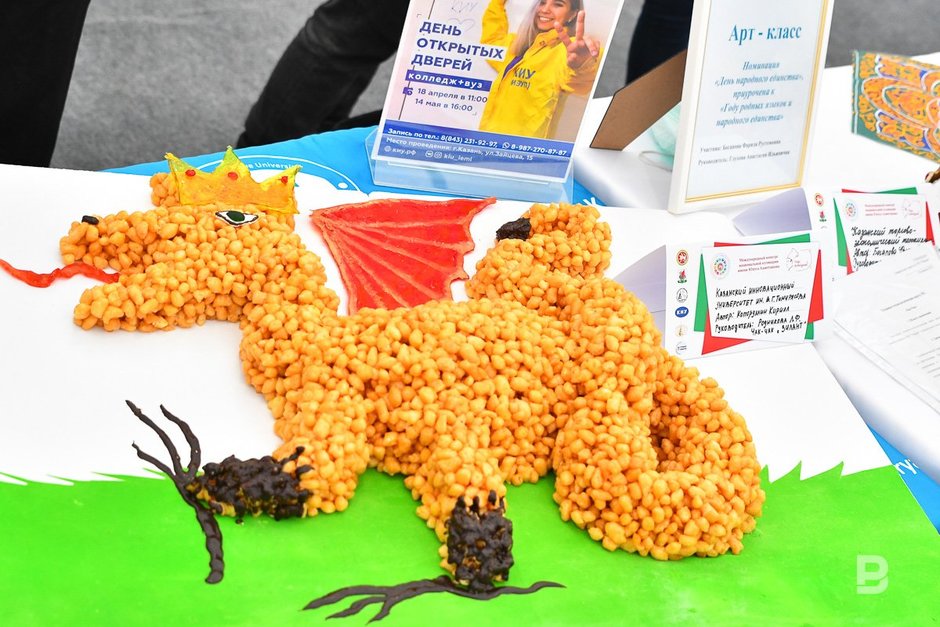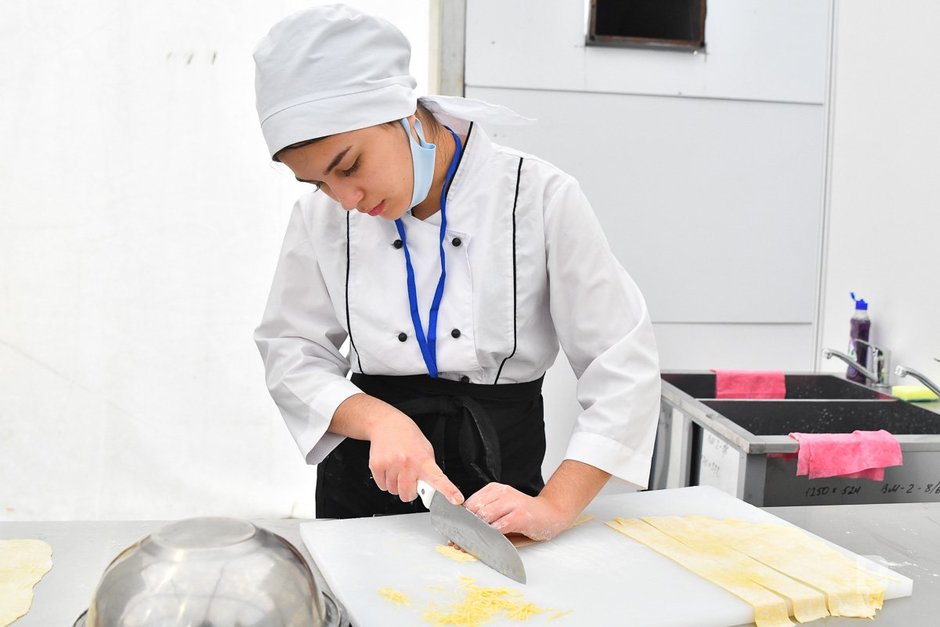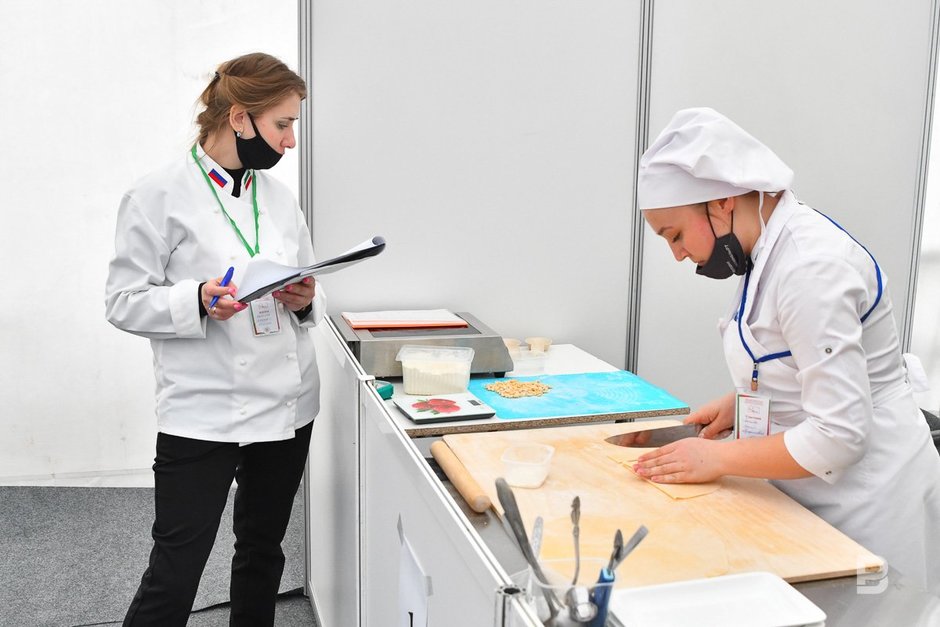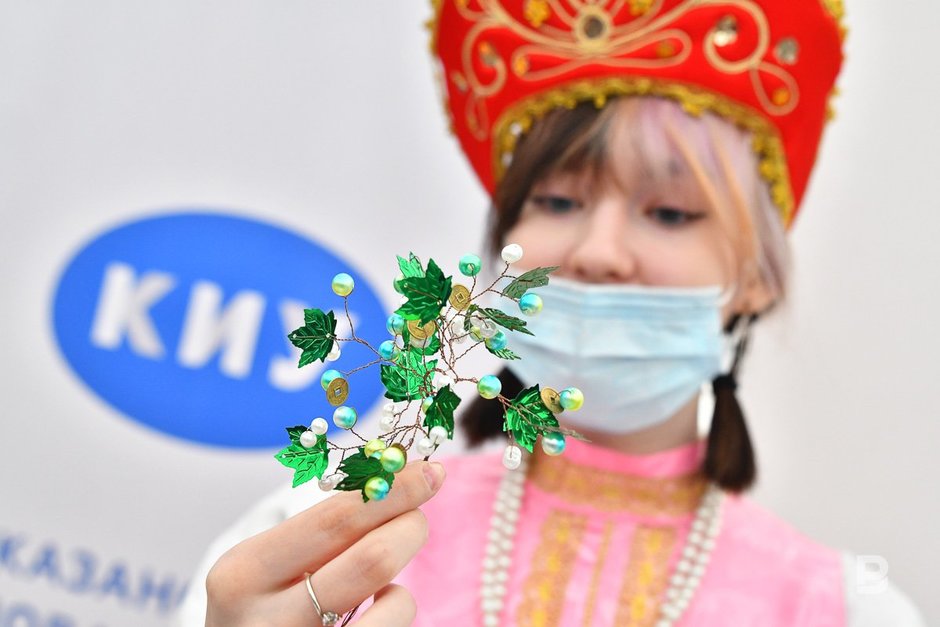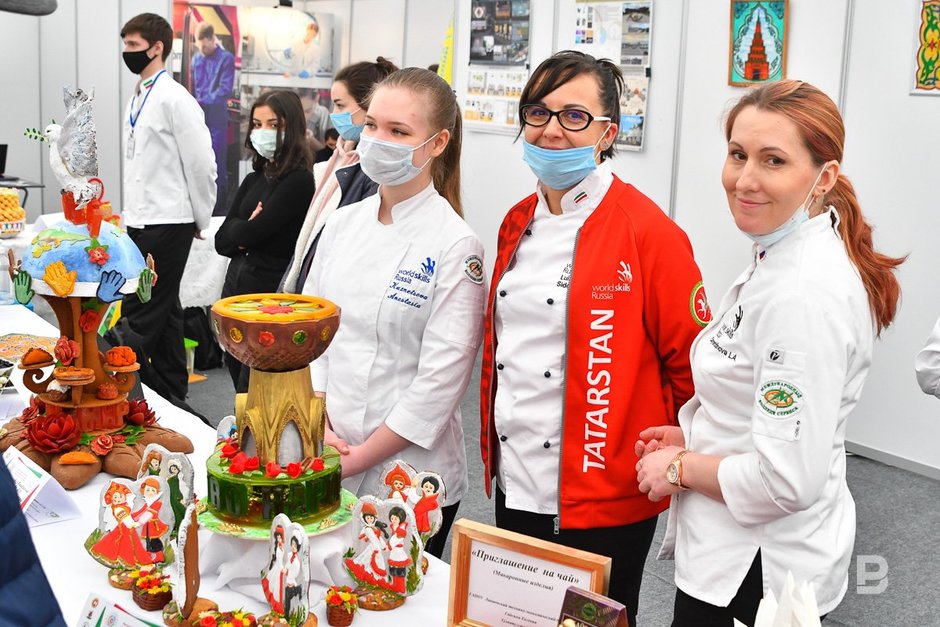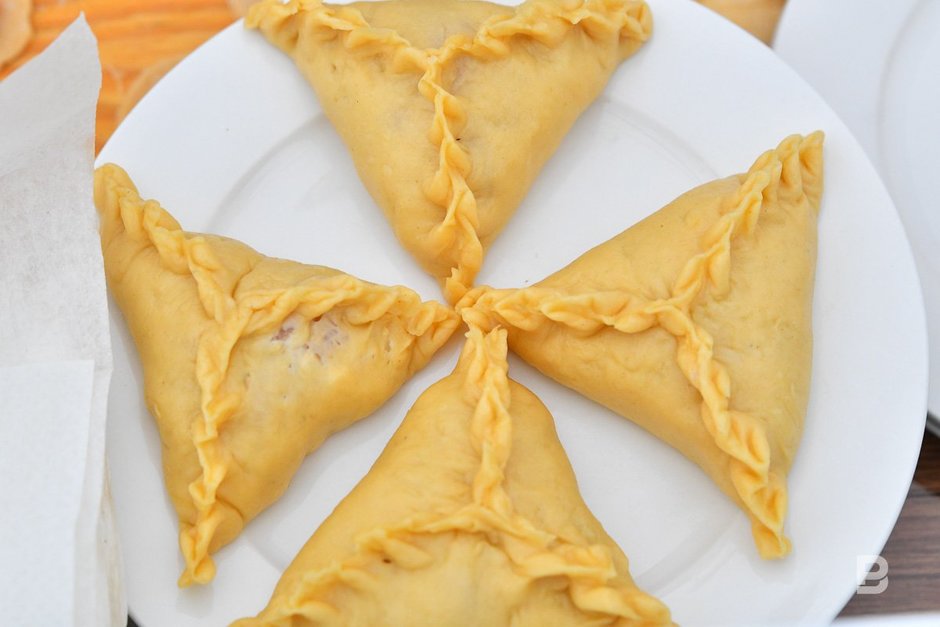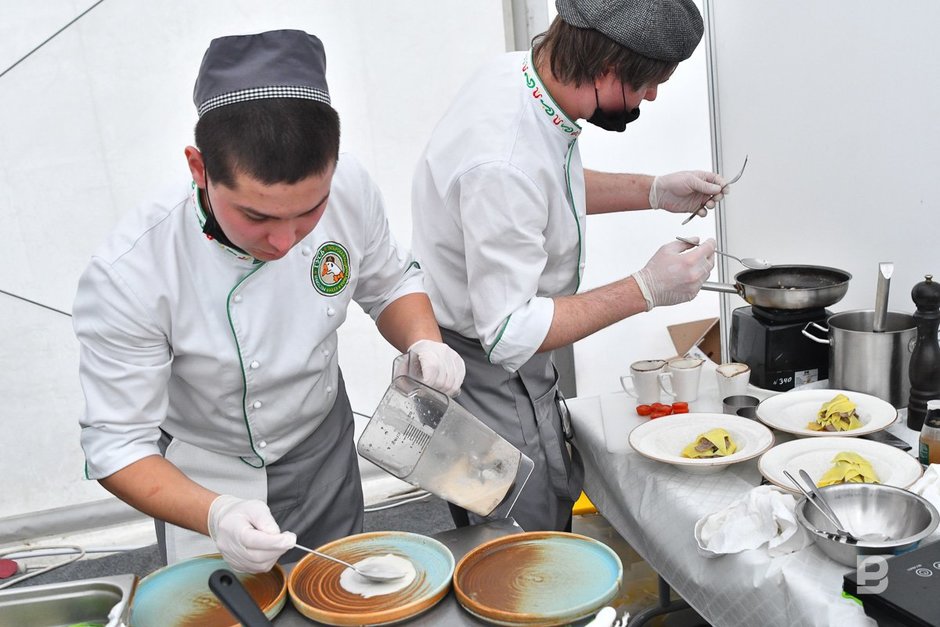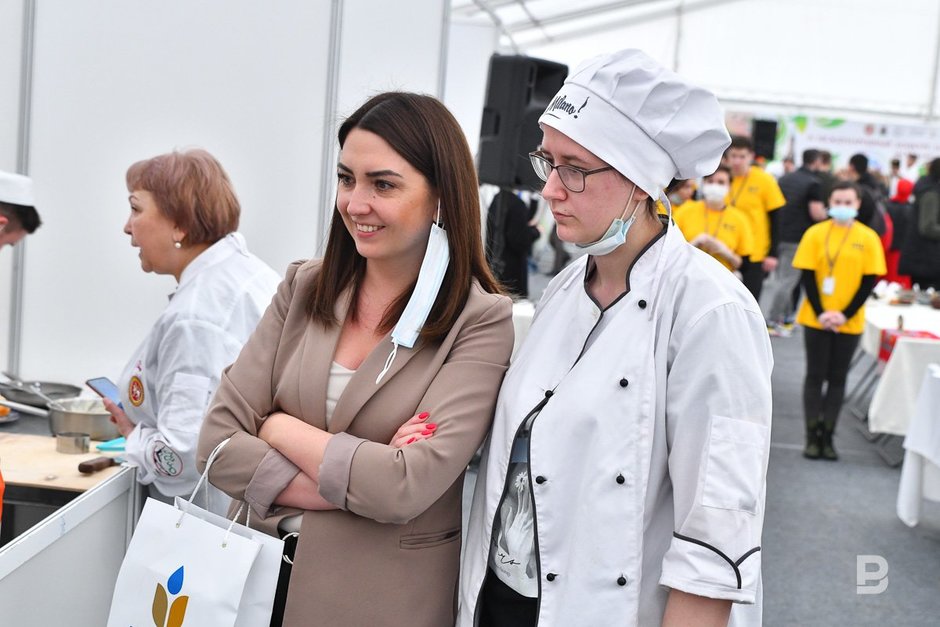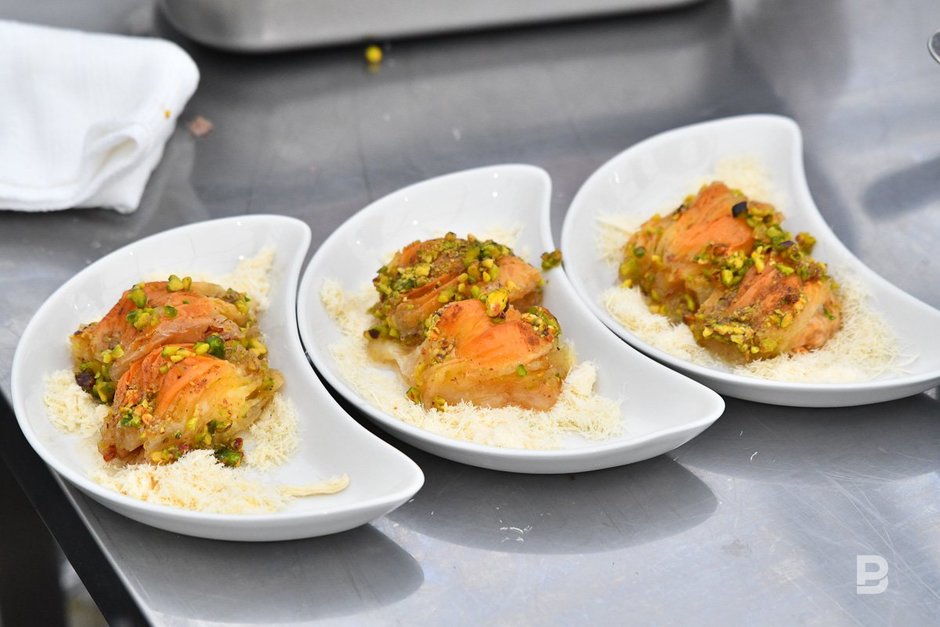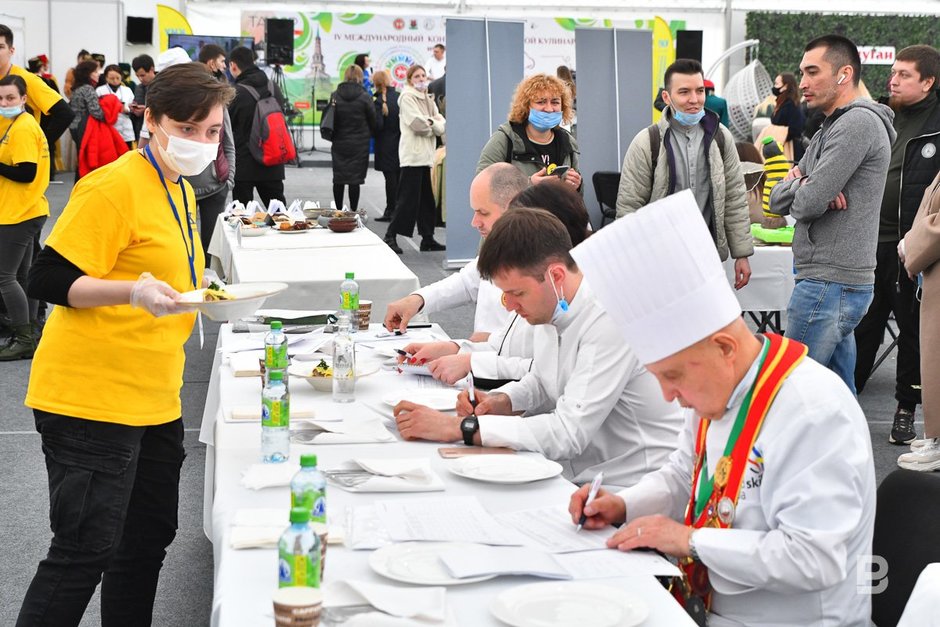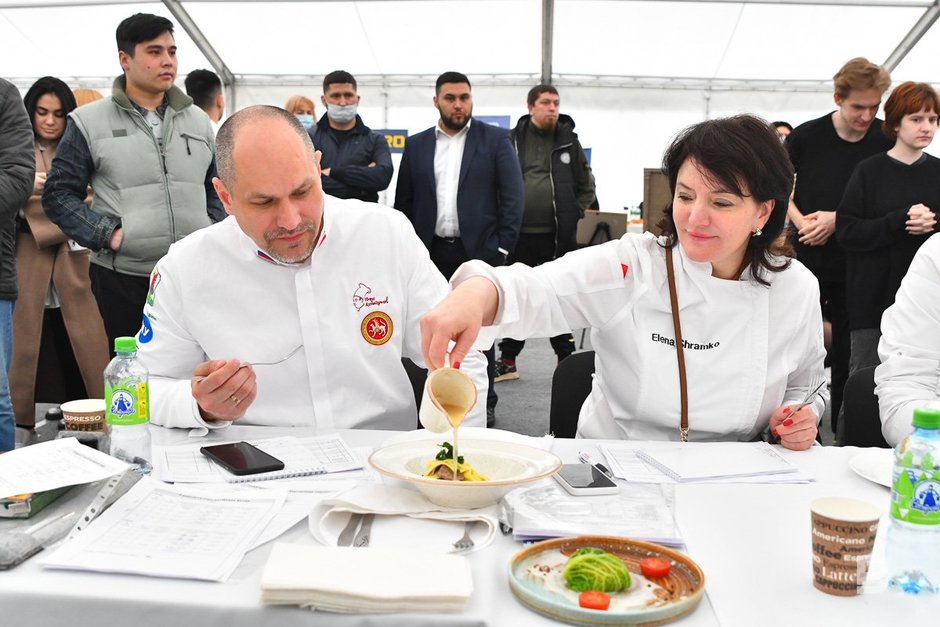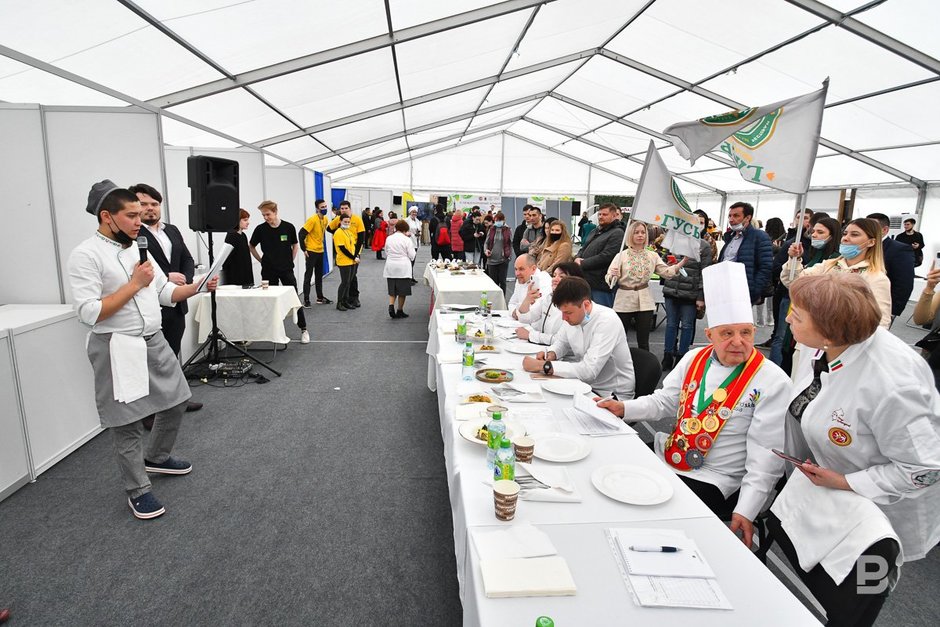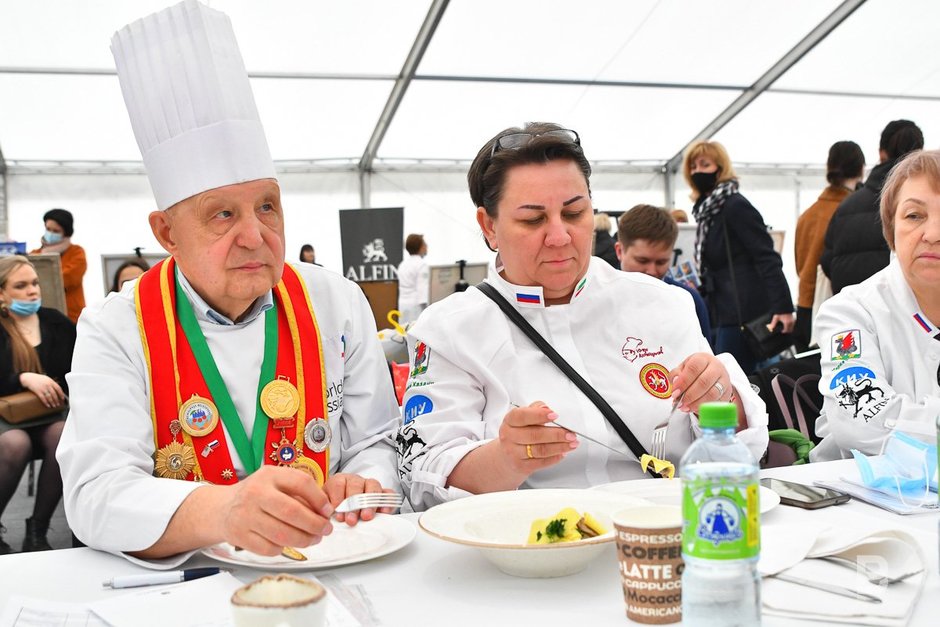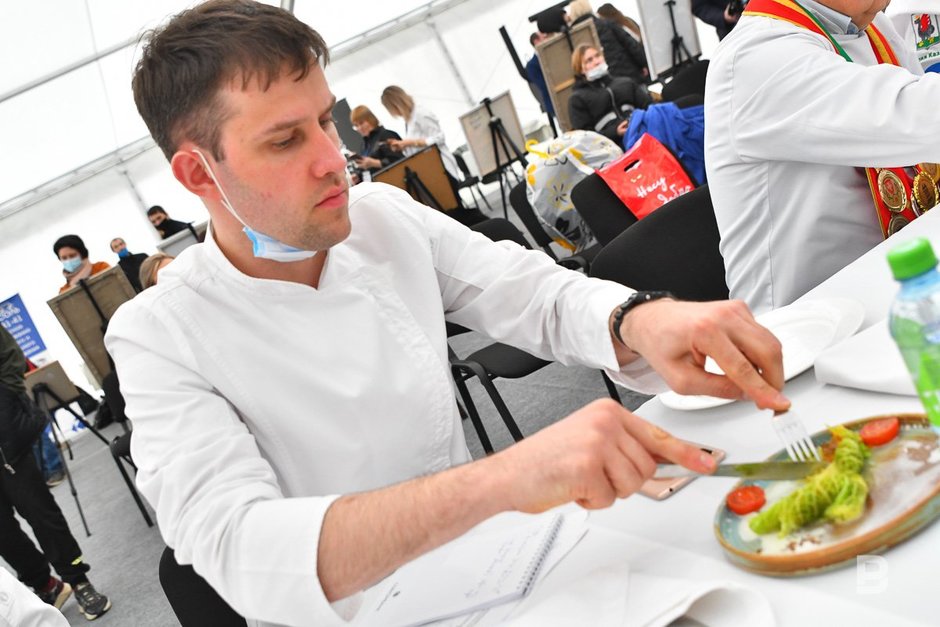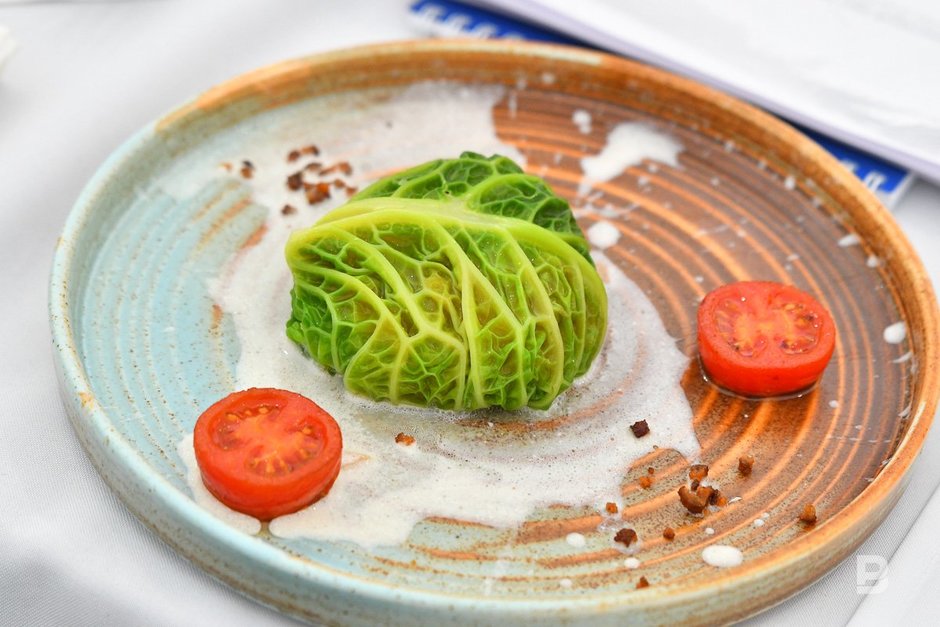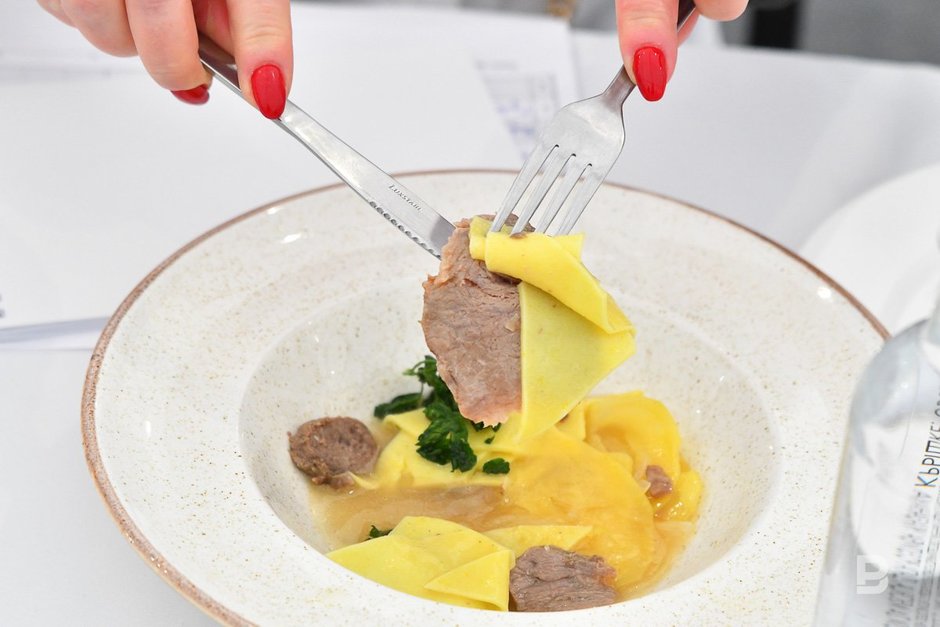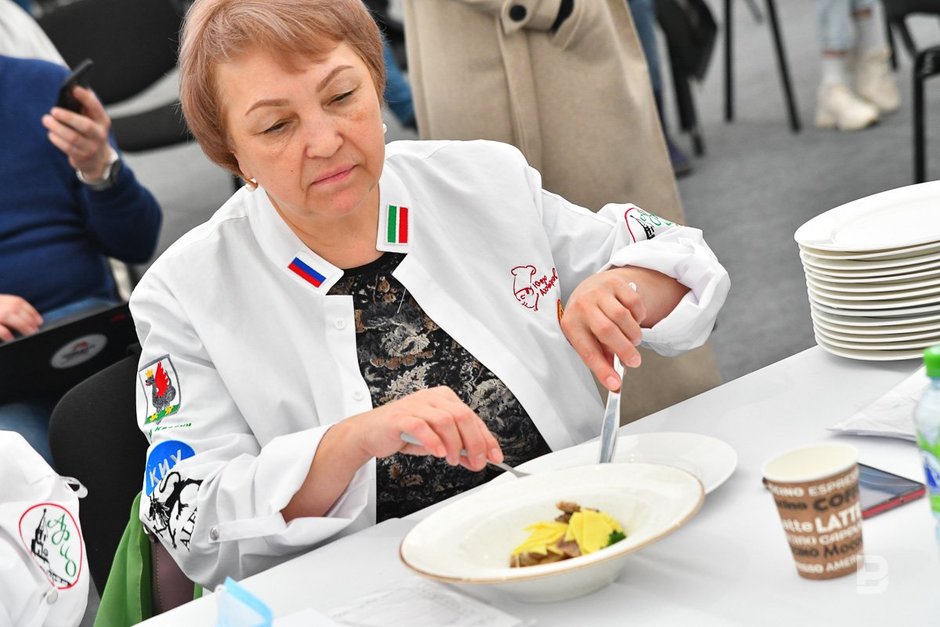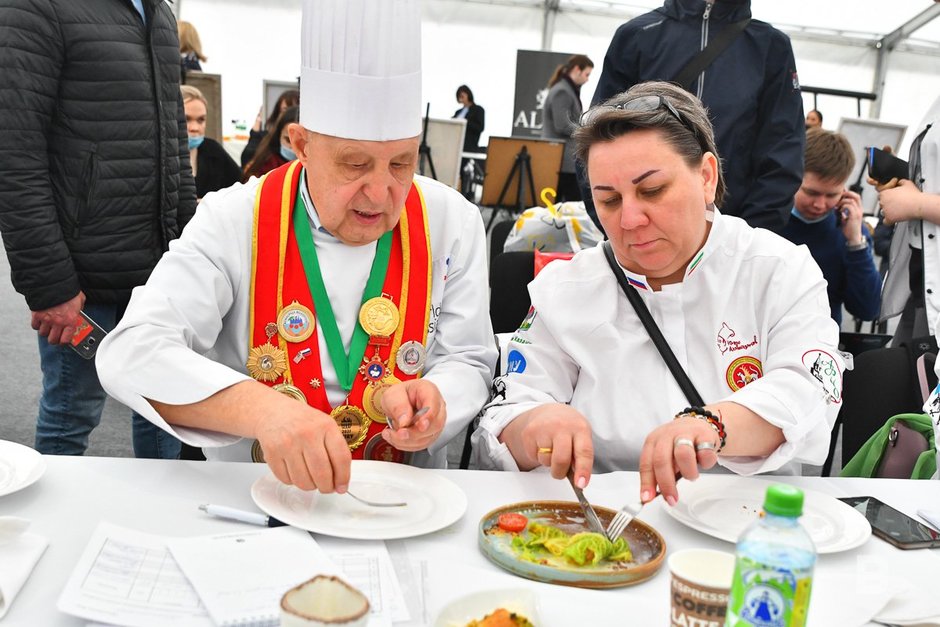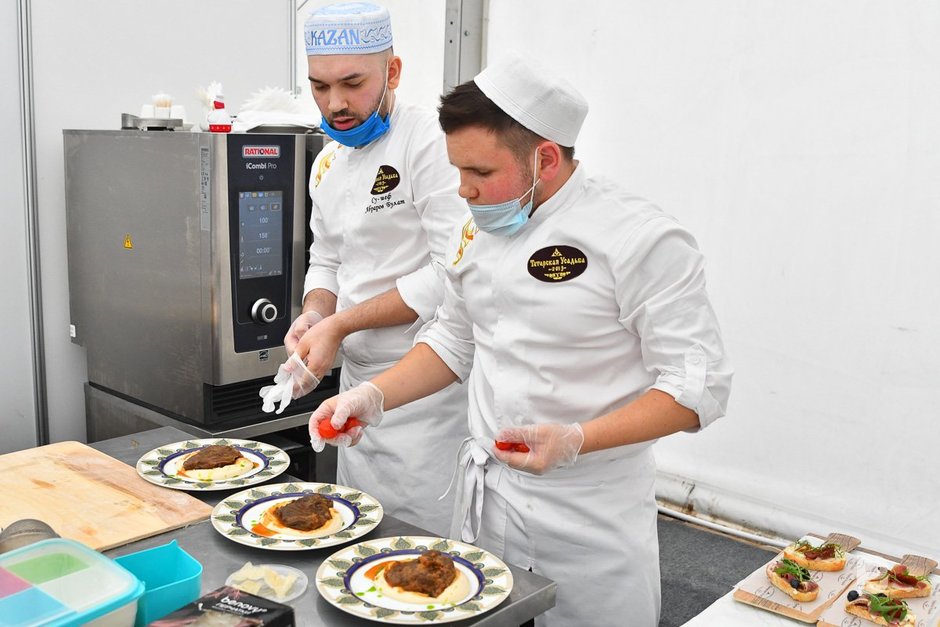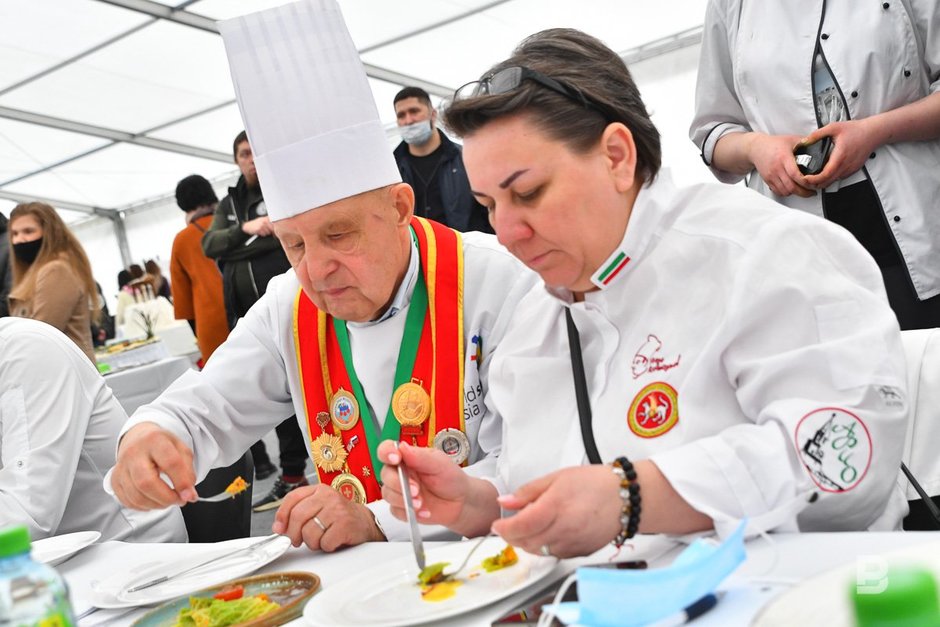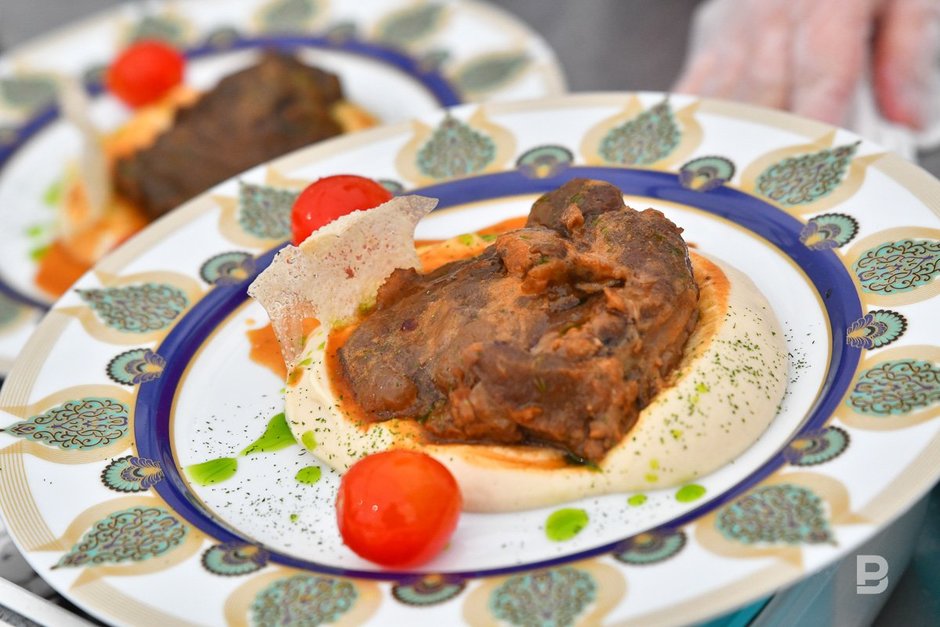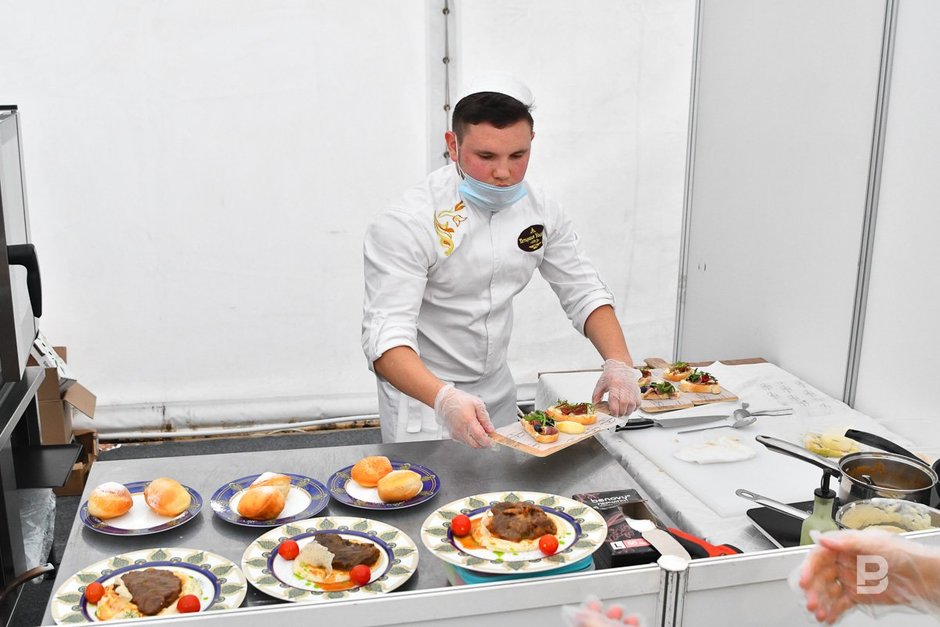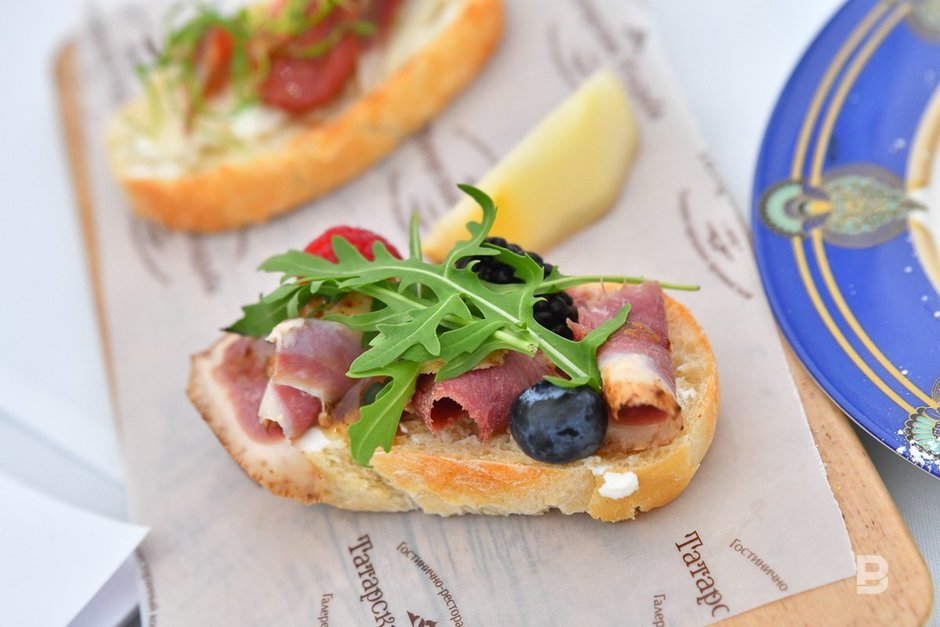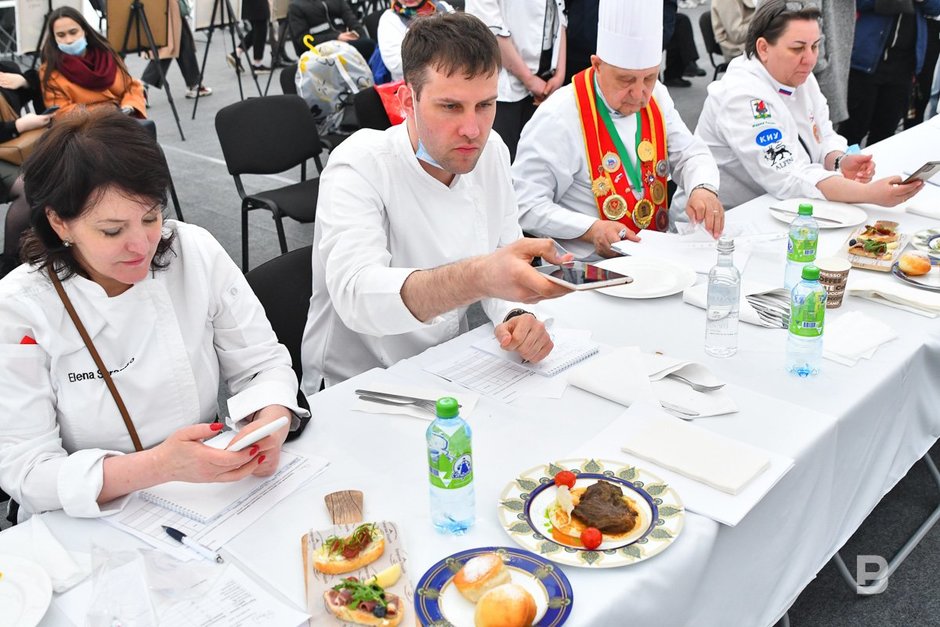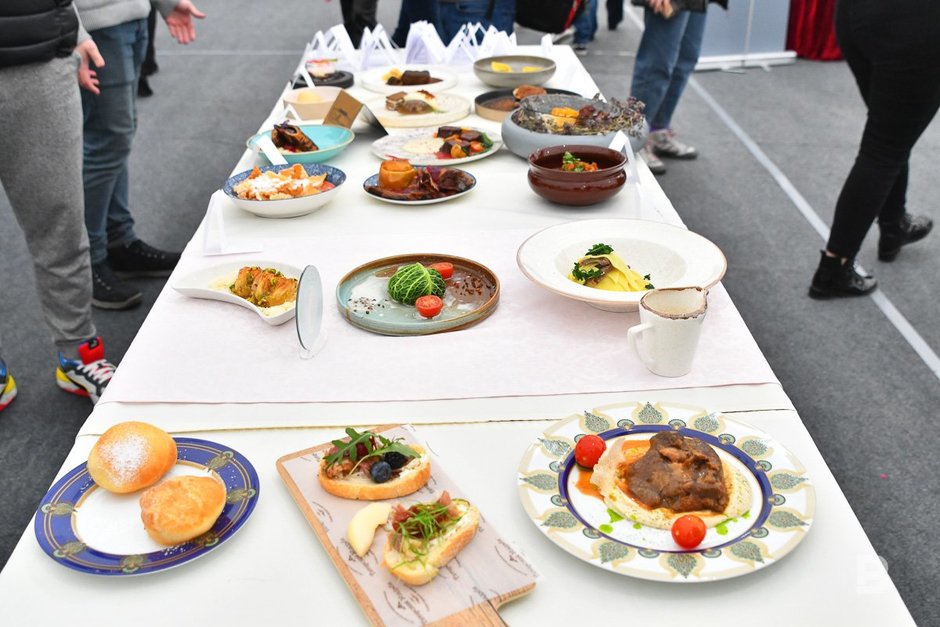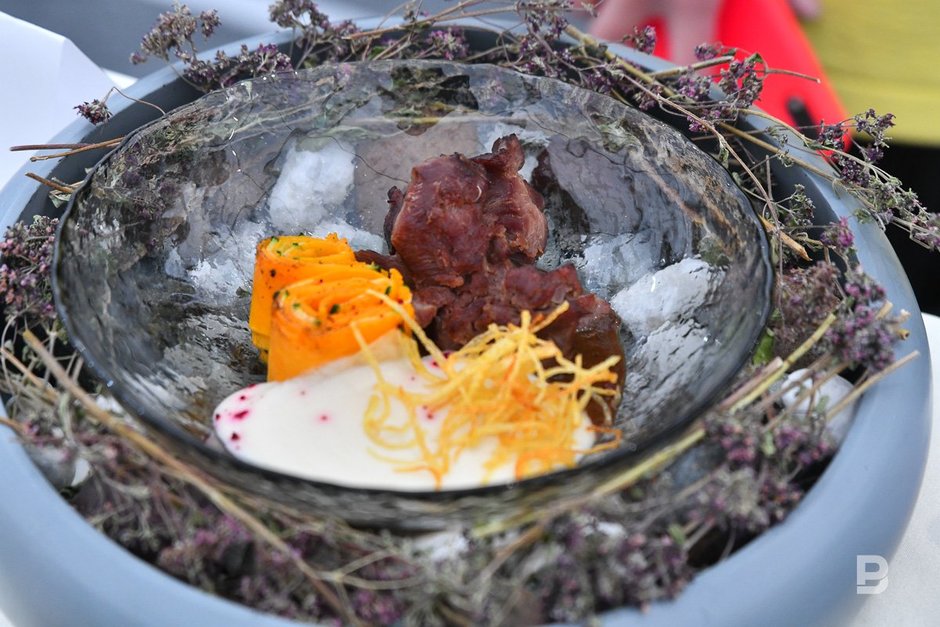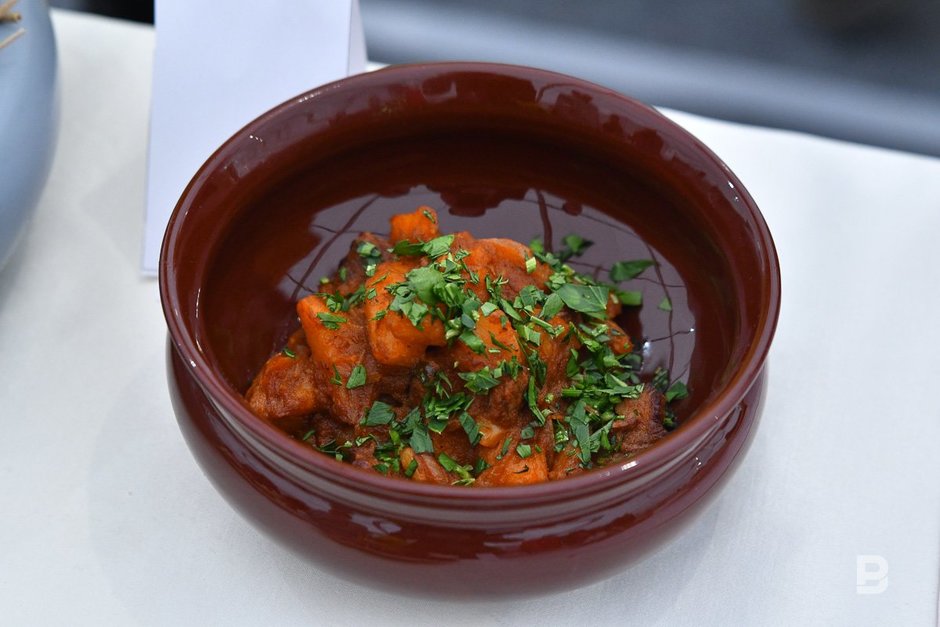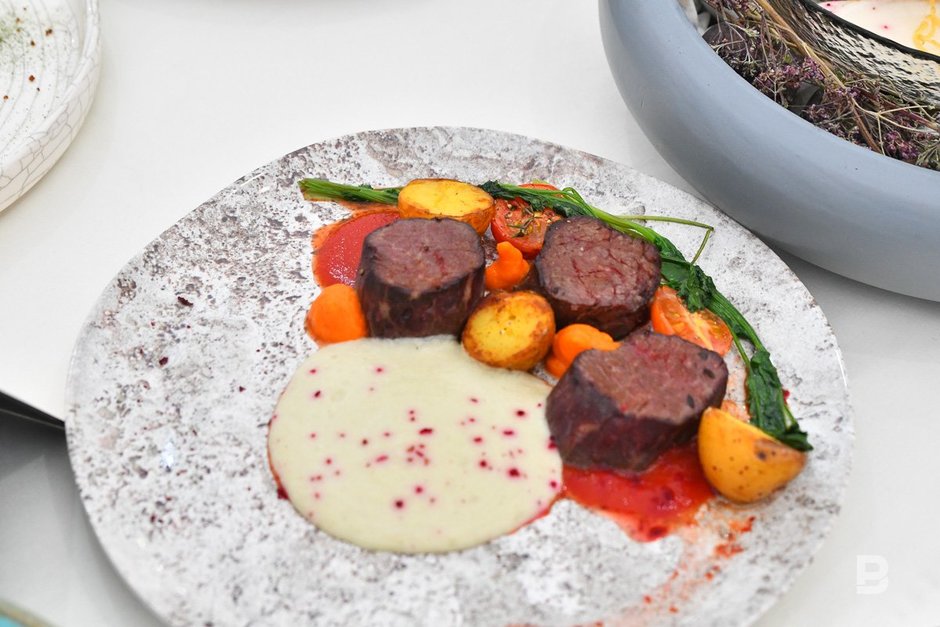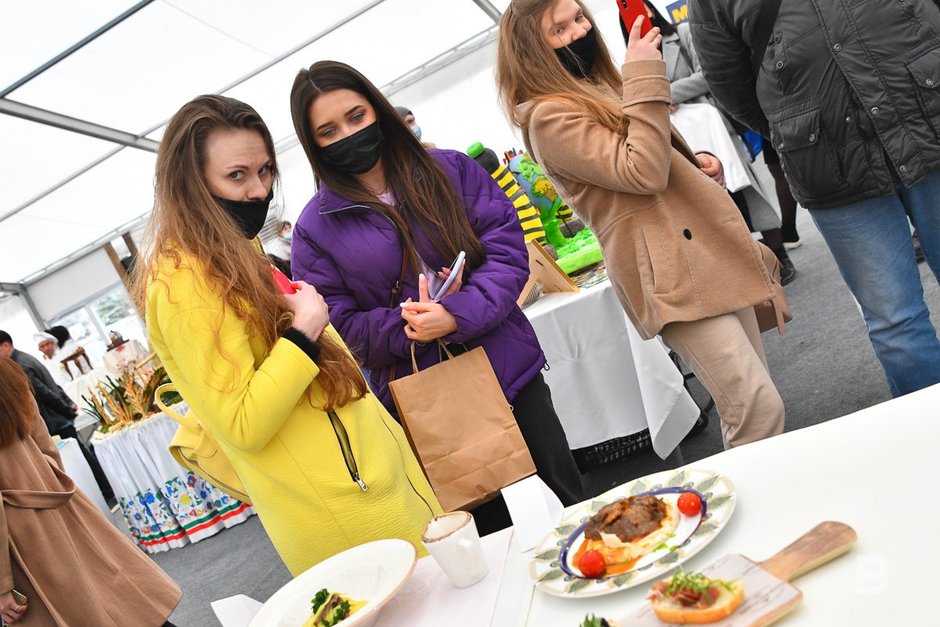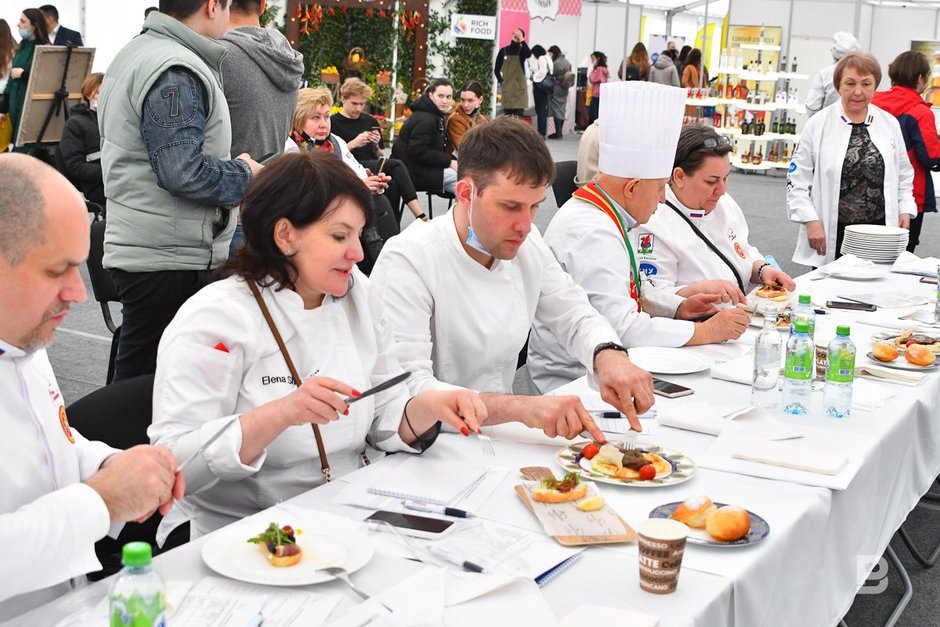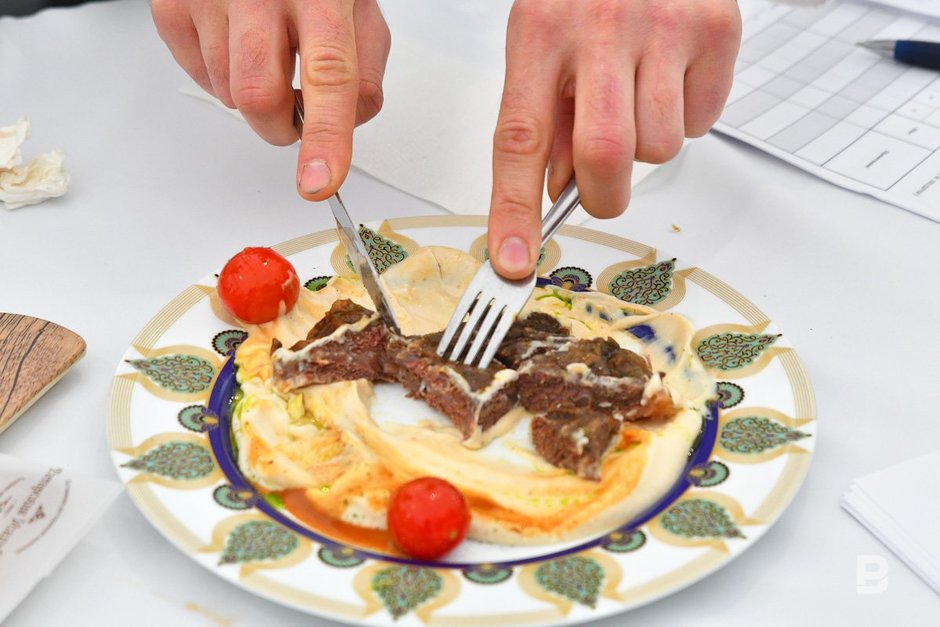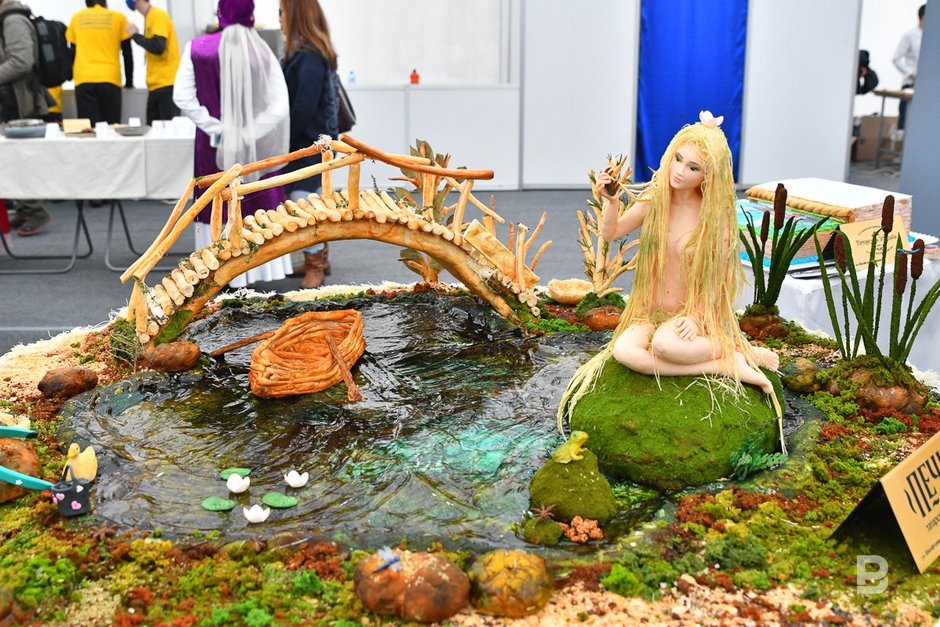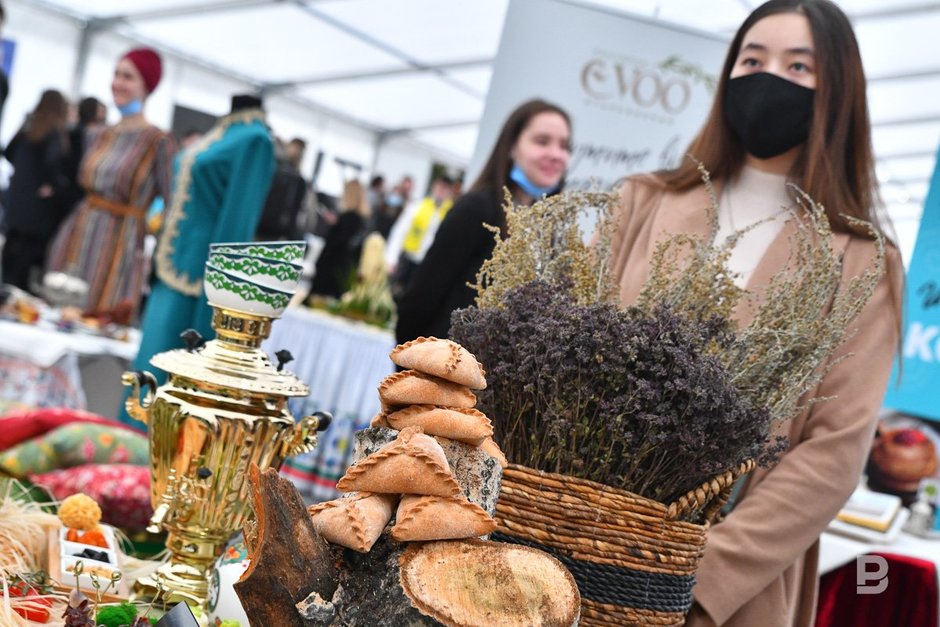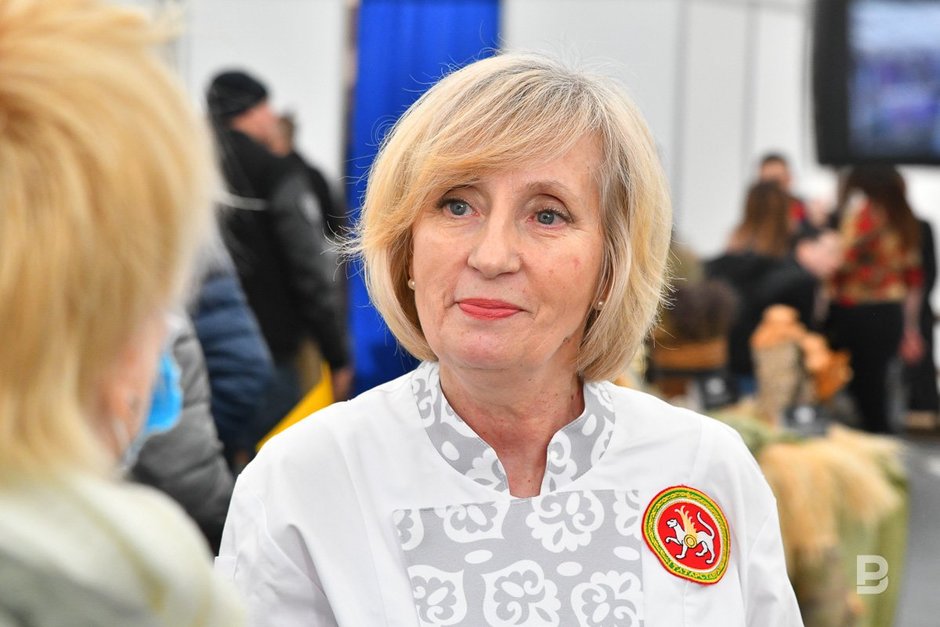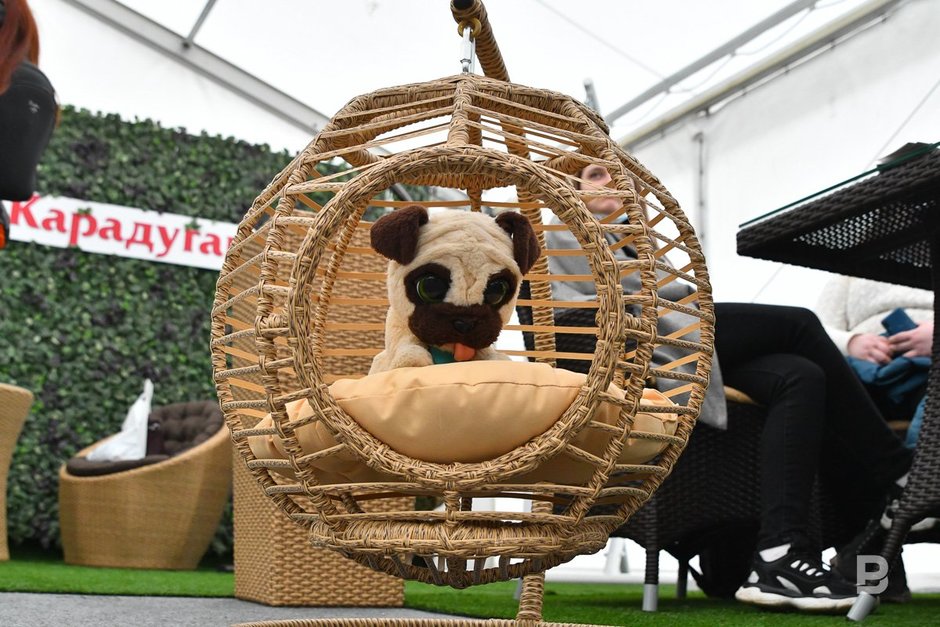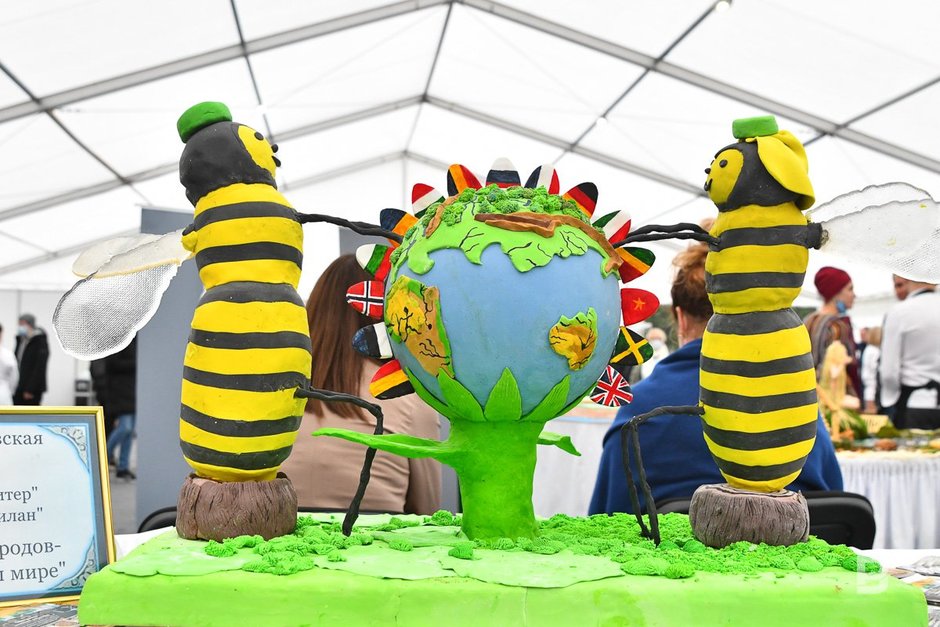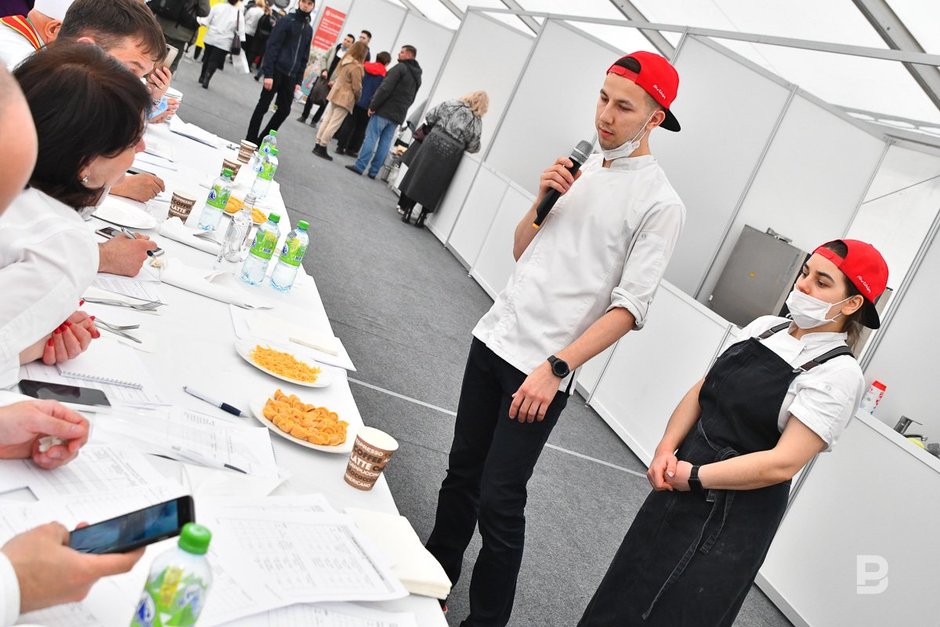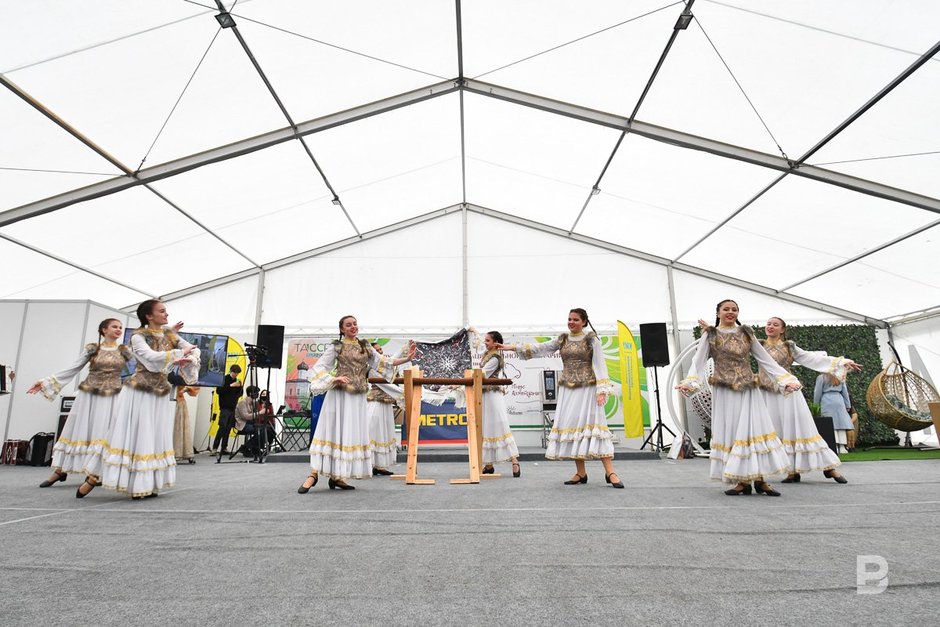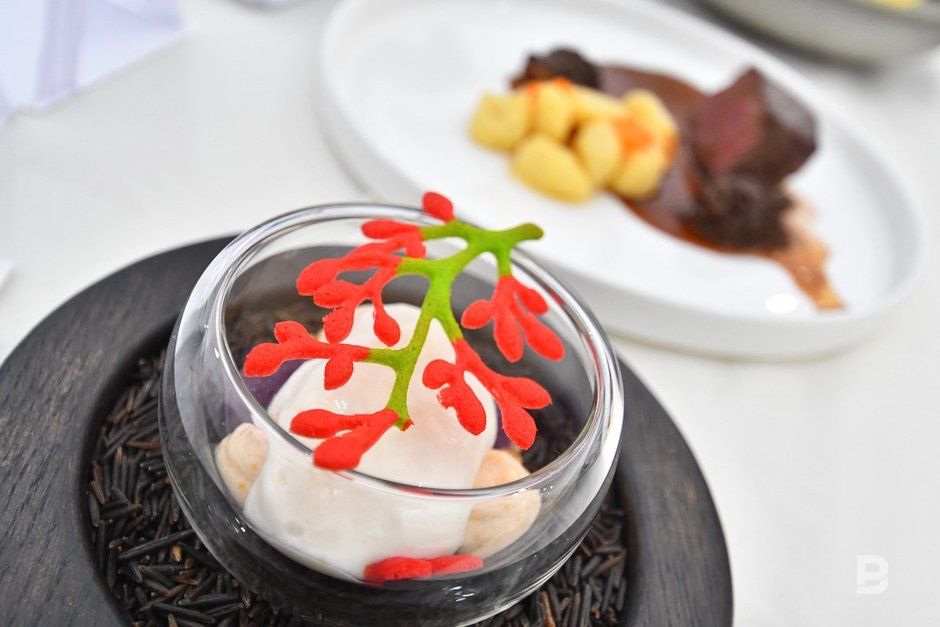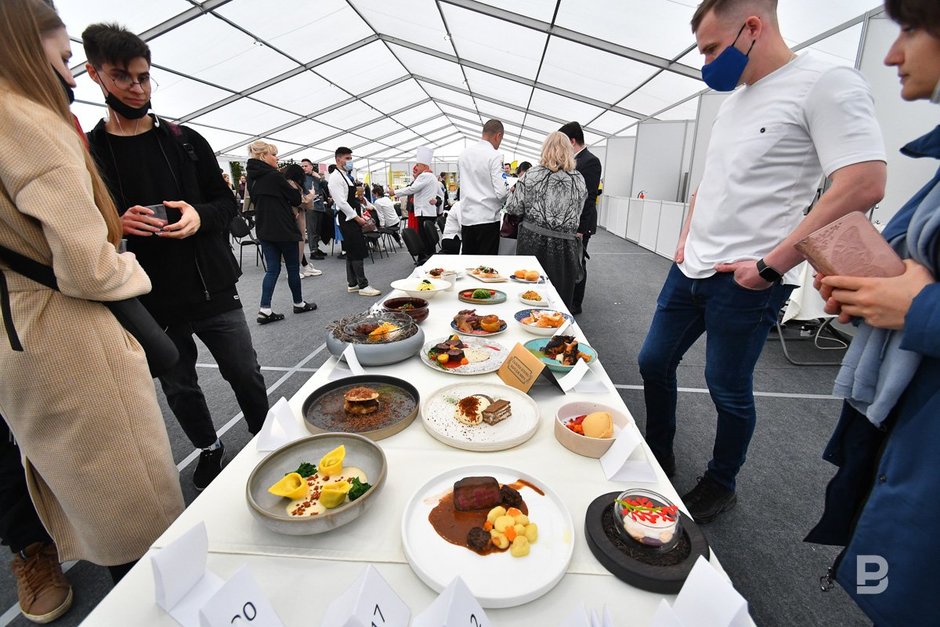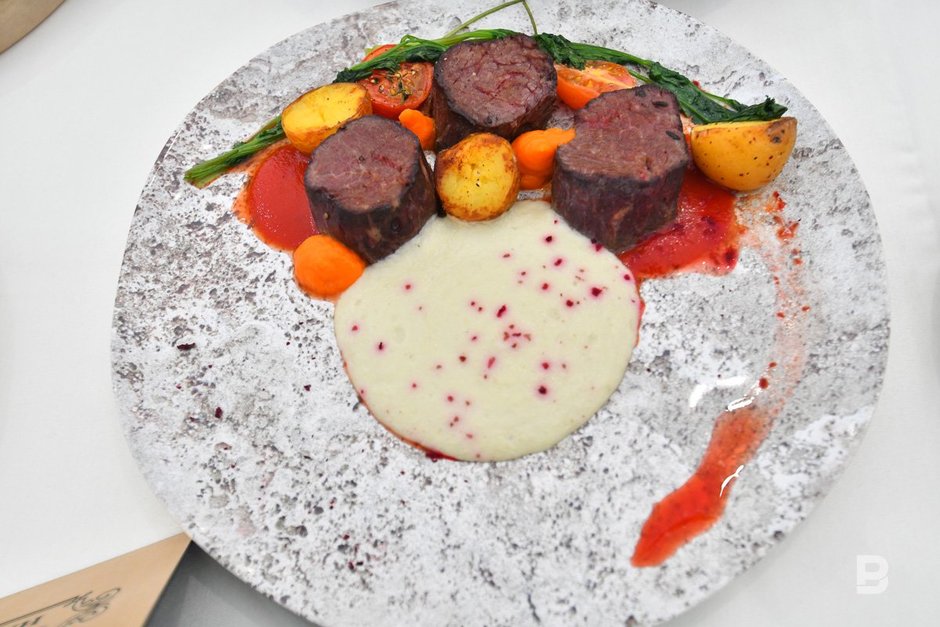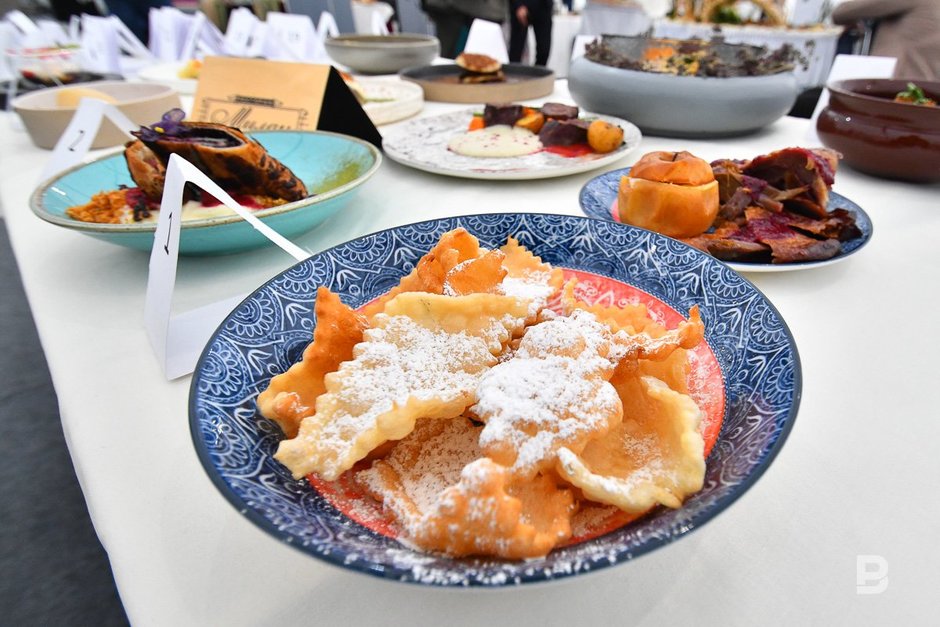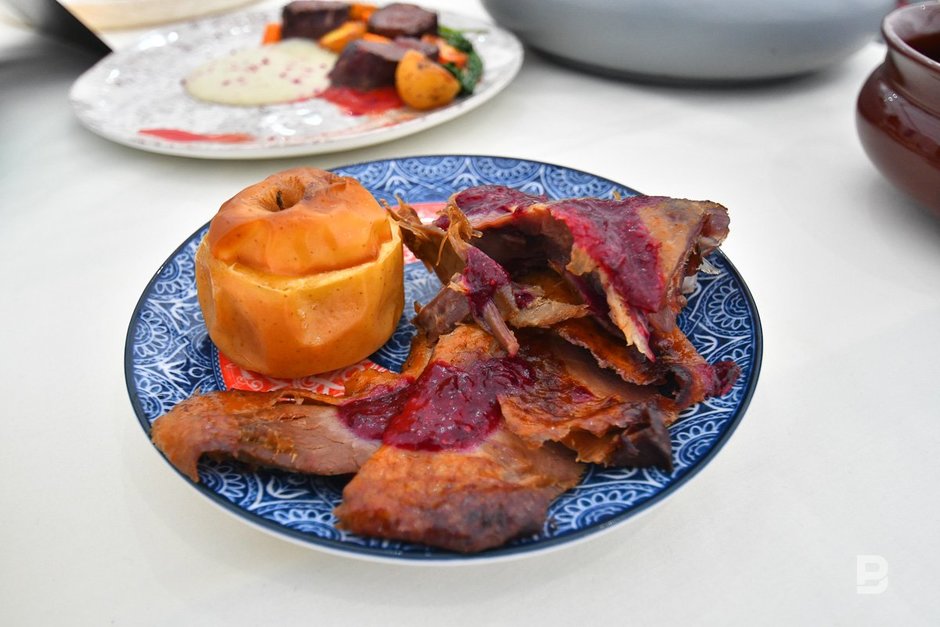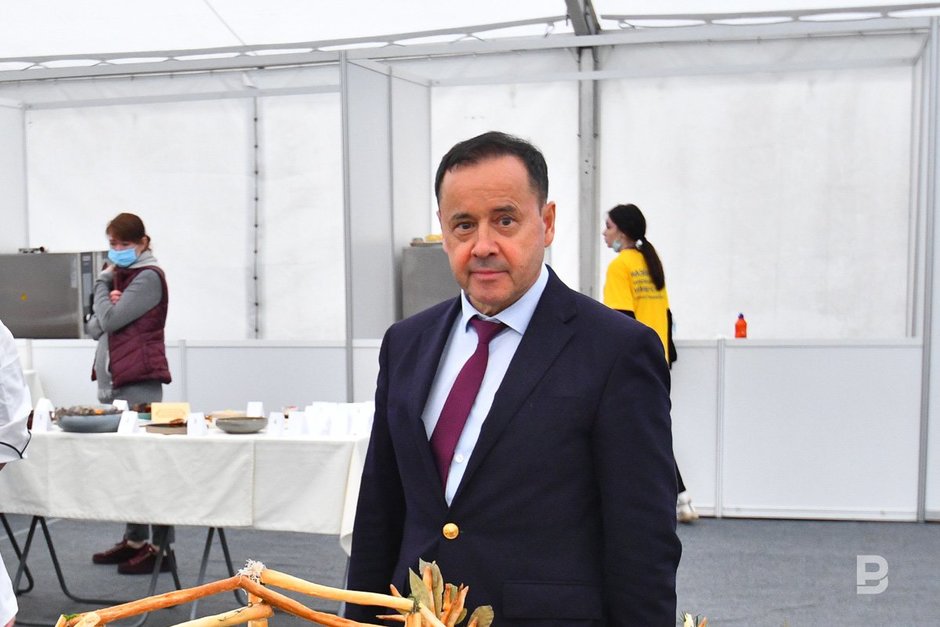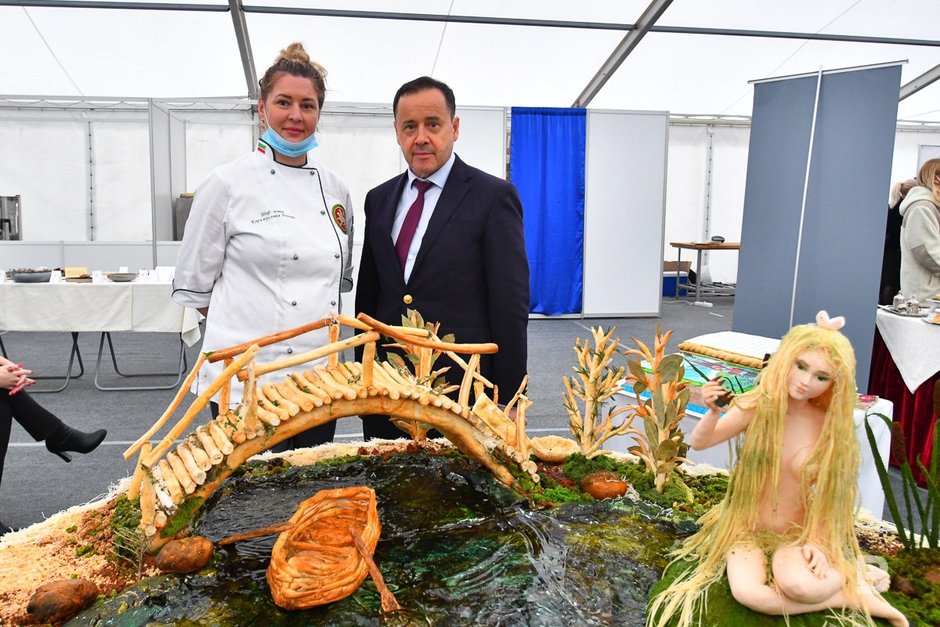All cuisines visit us
How the festival of national cuisine in Kazan going
A cake with ethnic edible embroidery from Chuvashia. Su Anasy at the jelly pond surrounded by a bridge of cookies next to the bushes of laurel. The craziest chak-chaks (fortunately, one can give any shape to this delicacy), dozens of echpochmaks of various types and images, stewed geese and kiyau-pilmen... We are at the IV International Yunus Akhmetzyanov National Cooking Competition in Kazan. For two days, chefs show their skills, learn from others and share their experience with colleagues. Read the report from the first day of teh festival in Realnoe Vremya.
Defending the status of the gastronomic capital
When you get to one of the pavilions of Kazan Fair on April 9, you immediately want to eat. The flavors of the dishes are mind-blowing, because the chefs are working here. They compete to see who can best rethink the ethnic cuisine. The championship is held within the framework of the 4th International Yunus Akhmetzyanov National Cooking Competition.
If it hadn't been for the pandemic and the quarantine last year, the contest would have been the fifth in a row. Last year, the competition was cancelled, but in 2021, they still managed to hold it. But now the restrictions have affected the geography of the event.
“The competition differs from the previous ones in that we decided not to gather the regions. Most of the participants are from Kazan, but we are glad that our colleagues from Ufa, Perm and Cheboksary responded," comments Galina Sharafutdinova, the project manager, executive director of the Association of Restaurateurs and Hoteliers of the Republic of Tatarstan.”
The gastronomic championship was dedicated to the year of native languages and ethnic unity, the theme of which refers not only to the dishes prepared within the framework of the competition, but also to the so-called homework-cakes and whole edible expositions made by the hands of craftsmen.
In parallel, the site hosted competitions among students of specialised educational institutions in culinary skills in accordance with WorldSkills standards. Thus, both members of the professional community and students participated in the championship.
“I see that every year the professionalism and quality of cooking is growing. The competition is aimed at raising the level of our chefs. After all, we are now the gastronomic capital and must meet this status," Sharafutdinova notes.
The project manager spoke with pride about who judged the gastronomic delights. The jury included Viktor Belyaev, the president of the National Culinary Association of Russia, world champion in confectionery art, winner of 25 international gold medals. Also, accredited judge of WACS Elena Shramko and chairperson of the Association of Cooks of Chuvashia Nikolay Uyezdny. For the first time this year, the Renat Zalutdinov Award has also been presented, thereby honouring the memory of the president of the Association of Restaurateurs and Hoteliers of Tatarstan, who passed away in January 2021.
The “edible embroidery” took a month
The pavilion of Kazan Fair was zoned for several activities. On the first day of the championship, folk groups, artists from the Kazan Institute of Culture, actors in bright national costumes from Nizhnekamsk performed right at the entrance on an improvised stage. In between performances, Kazan chefs won the audience's attention by conducting master classes on cooking octopus, pizza and other dishes. The resulting culinary masterpieces were offered to the participants themselves, handing out a piece on disposable plates.
Along the pavilion, there were partners of the competition — manufacturers of food and alcoholic beverages, cooking goods, and grocery chains. And in the centre, one could look at amazing products — for example, Su Anas at the jelly pond from the Kazan restaurant or the 'Threads of Life' cake from the Cheboksary confectionery. Its author is master pastry chef Yury Sivolob. The interlocutor of our publication, with a little melancholy, as if it is not essential, told how in Belarus at a similar competition they won gold in confectionery, and in Luxembourg — bronze.
It took more than a month to make the edible table with threads, needles and a napkin with an ethnic Chuvash pattern!
“We have not seen anyone making napkins in principle. The director said he wanted a cake with a 'cloth', we applied imagination and made it. The stand and the table are honey cakes, and custard dough is on top," the confectioner explained.
This cake, as well as other edible compositions, was evaluated by the jury in the category 'Art Class'.
From Tatar themes to the cuisines of the peoples of the world
Around the perimeter of the site, teams of chefs cooked to compete in the categories:
- Thematic Table, dedicated to the Year of Native Languages and National Unity in Tatarstan.
- Ethnic traditions — cooking noodles, kiyau-pilmen, echpochmaks.
- Ethnic Dinner — three dishes of Tatar cuisine according to Yunus Akhmetzyanov's recipes with the use of modern technologies.
- Cuisines of the Peoples of the World — two dishes of the ethnic cuisine of the region, represented by the concept of the institution.
One of the teams that was waiting for their turn was a delegation of students of the Perm Institute (branch) of the Plekhanov Russian University of Economics . It was headed by Sergey Yurin, the master chef of Perm Krai, prize-winner of international, Russian and regional competitions in cooking and service, judge of the international WAKS category. He was personally invited to Kazan by Galina Sharafutdinova, who met him a few weeks ago at a culinary competition in Bashkiria, where he was a member of the jury.
His team promised to present a whole exposition that would characterise the region. It will use real metal and valuable rocks of stones, which the Urals is rich in. Besides, on April 9, they were going to “marry” the ingredients of the ethnic Tatar cuisine with French cooking technologies. While the Perm team was waiting for their turn, other Tatar dishes appeared in the production boxes, which the jury was going to evaluate.
